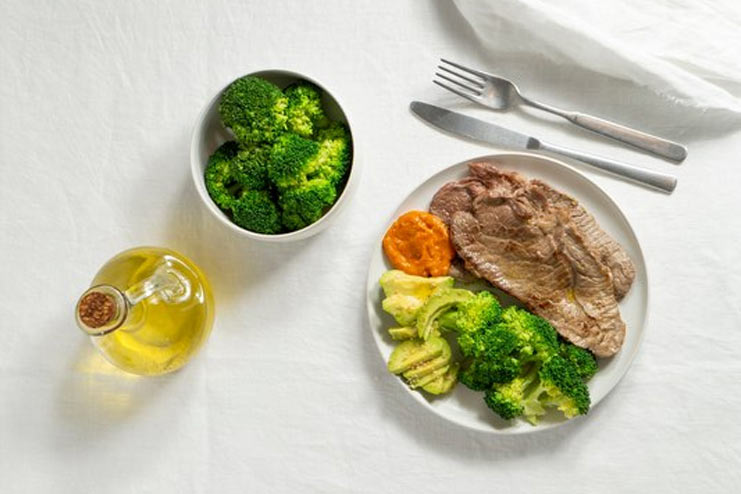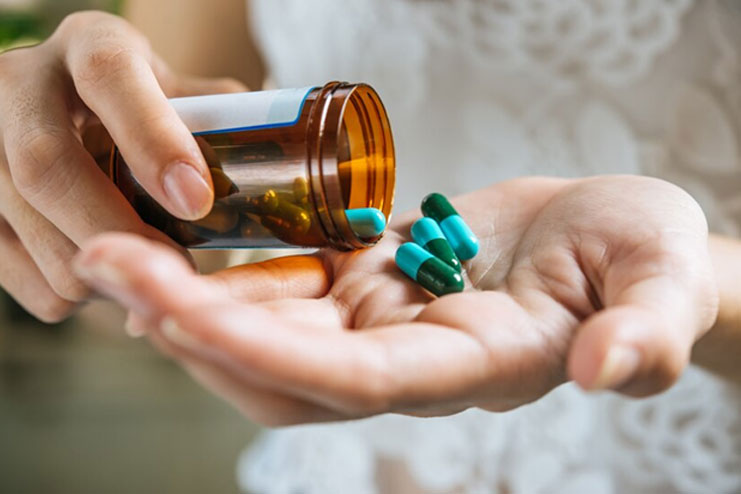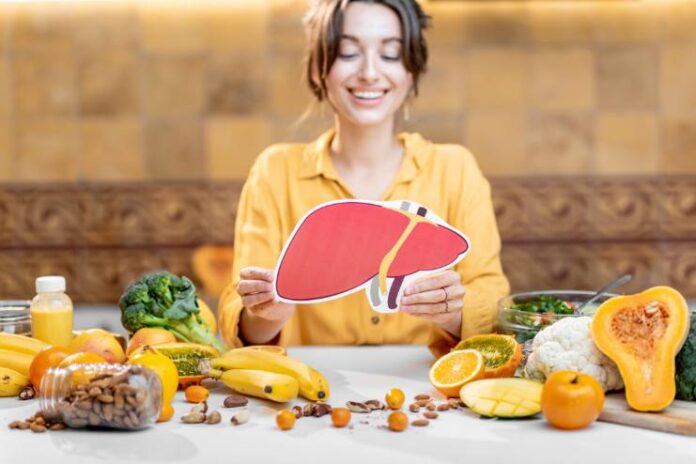Affiliate Disclaimer
Some links in this article are affiliate links. We may earn a small commission if you make a purchase through these links, at no extra cost to you. We only recommend products we find useful to our readersHepatitis is the inflammation of the liver that causes serious health complications and long-lasting effects. Hepatitis recovery requires careful management to restore or maintain liver function. Supporting liver health after hepatitis is necessary to prevent further damage and enhance recovery. Effective post-hepatitis care involves a combination of lifestyle changes, dietary adjustments, and regular medical checkups. By focusing on the strategies that support liver health, recovery should become easier and risk of future liver complications reduced.
Follow a Liver-Friendly Diet

Including liver-friendly foods in your diet will maintain liver function and prevent liver diseases.
- Leafy greens, like spinach, kale, and broccoli, are full of antioxidants and vitamins crucial for liver cleansing.
- Lean proteins like fish, chicken, and legumes provide your body with vital nutrients without overloading your liver with excessive amounts of fat.
- Foods containing fibre, such as whole grains like brown rice, quinoa, and oats, maintain balanced blood sugar levels, reducing strain on the liver.
It’s important to know which foods to avoid as well.
- It’s important to avoid alcohol and processed foods. Consuming too much alcohol will severely damage the liver, causing fatty liver disease or cirrhosis.
- Processed foods are full of unhealthy fats, sugar, and other additives that can burden the liver.
Antioxidants and vitamins C and E in fruits and vegetables can prevent liver damage due to oxidative stress and inflammation.
Stay Hydrated

Adequate hydration helps the liver detox the body by flushing out toxins and waste products. When your water intake is good and the body is well-hydrated, the liver metabolises substances efficiently, preventing the accumulation of harmful compounds.
It is recommended to take at least 8 glasses of water per day (approximately 2 litres). However, this amount will vary depending on physical activity, climate, and health conditions.
Also, read: How to Recognize Early Signs of Liver Disease in Adults
Avoid Alcohol and Toxins

Alcohol and environmental toxins are major risk factors for liver health. High amounts of alcohol intake can lead to various stages of liver damage, from fatty liver disease to cirrhosis. The liver can become overloaded by the continuous strain of processing alcohol. This leads to inflammation, oxidative stress, and impaired liver function.
Alternatives to Alcohol
Consider non-alcoholic beer, mocktails, kombucha, and flavoured fizzy water. These alternatives provide a satisfying experience without the harmful effects of alcohol. Reduce your exposure to environmental toxins to protect your liver. Common environmental toxins like heavy metals, pesticides, and volatile organic compounds build up in the liver and cause oxidative stress and inflammation.
Exposures can be reduced by increasing your organic food intake and using non-chemical cleaning products, decreasing your processed food consumption, and avoiding plastic as much as possible. These modifications can decrease the load of liver toxins and nourish it to function well.
Related Article: What Are The Effects Of Alcohol On Your Skin? 7 Alarming Side Effects
Regular Physical Activity

Regular physical activity reduces fat accumulation, minimises inflammation, and improves blood flow to body organs. This prevents the process of steatosis or nonalcoholic fatty liver disease (NAFLD) and cirrhosis.
Recommended Activities
- Aerobic Exercises: These involve brisk walking, cycling, and swimming exercises. Such exercises increase heart rate and thus raise oxygen supply to the liver. It’s recommended to perform at least 150 minutes of moderate-intensity aerobic exercise per week.
- Strength Training: Include resistance exercises, like weight lifting or exercises with body weight, at least twice a week. These help build muscles, boost metabolism, and promote liver health.
Frequency and Duration: The American College of Sports Medicine suggests 150 minutes of moderate-intensity exercise per week. Regular exercise supports liver health, boosts energy levels, improves mood, and enhances quality of life.
Manage Medications Wisely

Effective medication management is essential for liver safety. Because the liver processes most medications, make sure to consult your healthcare provider before using over-the-counter medications and supplements. Some drug interactions may damage the liver or cause it to interact adversely with certain medications.
Consult Doctor
Always keep your doctor updated about the drugs you take and your medical condition.
Avoid Harmful OTC Drugs
Some over-the-counter medications, such as acetaminophen, are hepatotoxic if taken in excess or for longer periods.
Explore Alternative Treatments
Regular Medical Checkups

To keep the liver healthy, regular medical checkups are necessary. Part of this examination includes liver function tests (LFTs), which monitor liver functioning and help in the early detection of damage or disease. These tests determine the amount of enzymes, proteins, and other various substances in your blood to assess liver function.
What to Expect?
During checkup, your doctor will review your medical history, check for any symptoms, and may suggest LFT or imaging studies. Your doctor might adjust your medications or recommend lifestyle modifications based on results.
Staying in Touch
Open communication will help adjust new treatments to prevent complications. Medical checkups are important for maintaining good liver health.
Stress Management

Stress significantly affects liver health. It causes inflammation, increasing the severity of a preexisting liver problem. Chronic stress leads to unhealthy behaviours, such as poor diet or excessive alcohol intake.
Techniques for Managing Stress
- Yoga: It is a combination of physical postures, breathing exercises, and meditation. These help an individual in stress reduction and improving health. Yoga can bring down cortisol levels in the body and help a person relax.
- Meditation: It calms the mind, controls stress, and helps improve emotional health. With regular meditative practices, one is able to focus better with a sense of peace.
- Mindfulness: One learns to live in the present moment, acknowledging thoughts without judging them. The result is reduced anxiety and mental wellbeing.
Read More: 7 Good Ways To Relieve Stress Naturally
Benefits of a Stress-Free Lifestyle
A life free from stress supports better decision-making, healthier habits, and a stronger body.
Consider Supplements Carefully

Herbal supplements like milk thistle and turmeric are well known for their potential health benefits for the liver. Milk thistle contains silymarin, a substance known to help in liver cell regeneration and has anti-inflammatory properties. Turmeric contains an active compound called curcumin, which has anti-inflammatory properties and can help in supporting liver function by reducing oxidative stress.
Important Considerations
- Consult Healthcare Providers: They will advise you on appropriate dosages, possible interactions with other medications, and possible side effects.
- Quality Matters: Choose high-quality supplements from reputable sources.
Liver supplements should be integrated with a broader approach to liver health.
Conclusion
Recovery from hepatitis and maintaining liver health involves a comprehensive approach. Regular exercise improves liver function. Avoiding alcohol and other toxins prevents further damage to the organ. Effective medication management and regular check-ups will monitor liver health and ensure safe treatment. Yoga, meditation, and stress reduction techniques support general well-being and liver recovery. Herbal supplements, such as milk thistle and turmeric, can be added to provide additional support.
References
- https://www.hepb.org/treatment-and-management/adults-with-hepatitis-b/healthy-liver-tips/
- https://www.megawecare.com/good-health-by-yourself/liver-health/impact-of-environmental-toxins
- https://www.medicalnewstoday.com/articles/alcohol-alternatives#summary
- https://edis.ifas.ufl.edu/publication/HE791
- https://www.nhs.uk/conditions/alcohol-related-liver-disease-arld/
- https://pennstatehealthnews.org/topics/how-patients-with-liver-disease-can-benefit-from-exercise/
- https://www.healthline.com/health-news/nonalcoholic-fatty-liver-disease-how-150-minutes-of-exercise-a-week-can-help
In this Article




















